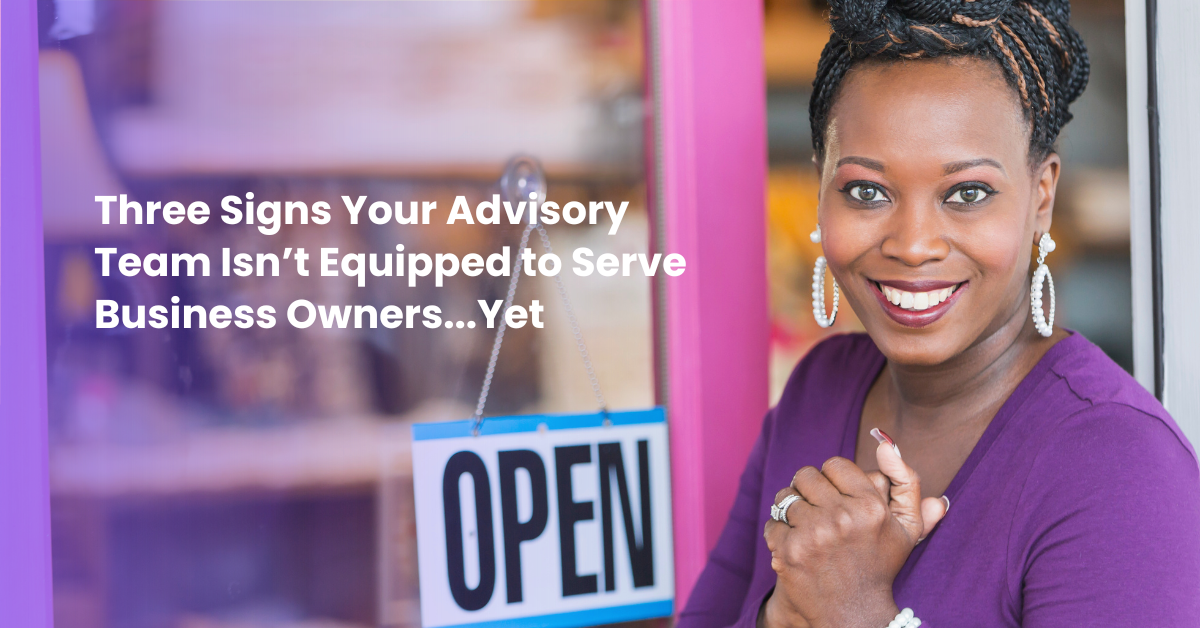Many advisory teams recognize the potential in working with business-owner clients. These clients are often the most complex, most engaged—and most underserved. And while the desire to grow in this space is real, the readiness to deliver strategic value to business owners is something else entirely.
At interVal, we see this gap every day. Advisors want to help, but they often don't realize they’re showing up with tools and tactics built for a different type of client.
Here are three clear signs your team may not be ready—yet.
1. You talk about portfolios before businesses.
Business owners don’t wake up thinking about asset allocation. They think about payroll, client acquisition, supply chain disruption, and growth strategy. Their business is their primary asset—and it carries emotional weight as well as financial value.
If your first question in a meeting is about their portfolio, you’ve already missed the mark. Leading with the business means asking the right questions:
- “What keeps you up at night as an owner?”
- “Where do you see the business in 3, 5, or 10 years?”
- “What would a successful exit look like for you—and when?”
Advisory teams that aren’t trained to ask these questions—and more importantly, know how to act on the answers—are missing the opportunity to engage at the level business owners need.
2. You treat valuation as a transaction instead of a planning tool.
Too often, valuation only enters the picture when an owner is preparing to exit. By that point, the window to influence outcomes—through tax strategy, succession planning, or risk mitigation—is already closing.
Modern advisors are shifting that timeline. They’re using real-time valuation insights as part of the ongoing planning process. This turns valuation into a strategic lever, not a last-minute number.
When you consistently track business value, you can:
- Surface insurance gaps that put legacy at risk
- Uncover opportunities to de-risk or reinvest profits
- Bring forward conversations about continuity, even if a sale is years away
That kind of insight doesn’t just strengthen your advice—it deepens your relationship. It shows the owner you see the full picture, not just their investment account.
3. You’re waiting for the business to come up.
This one’s simple: if your team is waiting for the client to mention the business, you’re not positioned to lead.
Business owners don’t always connect the dots between their enterprise and their personal financial picture. That’s your job. When advisors proactively ask, “What is your business worth today—and what do you want it to be worth?” (fun fact: 98% of business owners do not actually know the value of their business) they unlock an entirely different type of conversation. One that ties personal goals to business decisions. One that creates stickiness. One that leads to growth—for both of you.
Advisory teams need to be trained not just in financial products, but in business-owner psychology. The stakes are higher, the risks are different, and the opportunities are massive.
The good news? This is all fixable.
If your team isn’t quite there yet, that’s okay. It just means it’s time to evolve.
Equip your advisors with tools that let them speak to what matters most: the health, value, and future of the business itself. Give them the training to lead meaningful business conversations. And give them the data to back it all up—continuously.
When you do, you won’t just be ready to serve business-owner clients. You’ll be their first call, their most trusted sounding board, and their most valuable advisor.
